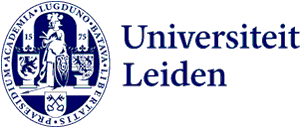
At the forefront of AI innovation: in conversation with Julian van der Kraats
AI-related activities and programmes are springing up throughout the university. In research, for example, at SAILS, and for staff in workshops and co-creation labs. As an AI champion at the ISSC, Julian van der Kraats is involved in various AI developments.

Innovation and collaboration
‘Leiden University is ahead of other universities when it comes to AI development and activities,’ says Julian. ‘It’s the only university with a platform where teaching and teaching support staff can build and implement educational chatbots for the classroom. Other universities have interesting pilots, but nothing like what we’ve got here. We’re sharing knowledge and experience with their AI pioneers. Then there are national initiatives we’re involved in, like SURF and Npuls.’ The strategic plan places a strong emphasis on innovation in education. ‘The academic world is changing, and our knowledge-focused environment offers plenty of opportunities to lead the way.’
Enthusiastic students
Julian wants to get students, teaching staff and researchers to work together – to test theories on AI-human interaction, for example. Or to learn how to use AI to create AI in a build your own bot class. The links between students, teaching staff and researchers are crucial, says Julian. ‘As a broad-based university, we already have lots of knowledge. The LIACS, for instance, and our own AI and Data Science programmes, as well as philosophy, education studies, psychology, etc. Students from different programmes are involved and really interested. They are queuing up to take part.’
Experimenting with LUCA in pilots
The LUCA (Leiden University Cognitive Agent) platform facilitates safe AI experiments. Educational templates make it easy to develop chatbots, and teaching staff receive anonymised information on how students use these chatbots. The university uses code developed by the University of Sydney.
‘The Faculty of Governance and Global Affairs has a tutoring bot for the Administrative Ethics programme’, says Julian. ‘It helps students by explaining complex material. And the Clinical Psychology chatbot is impressive too: students use it to practise talking to “patients with depression”. We develop the prompts for these chatbots with subject experts. And at the law faculty, we’re working on bots that ask open questions to discover whether students have understood the material. And there are several pilots at the Faculty of Humanities.’
Safety
How do they ensure this is done safely? ‘The role of the ISSC has changed somewhat,’ says Julian. ‘We used to be mainly an IT management partner but are now being more innovative and making sure things are done in a safe and cost-effective way.’ Within the ISSC, he has the role of Product Owner and has just recently become an AI champion. He is working with the Domain Manager for Education, Patrick Klaassen, to ensure the AI platform is safe. It runs on Microsoft Azure’s cloud services, with the LUCA data stored safely there.
Across the university
‘We are using pilots and tests to try to get everyone on board. The Leiden Learning and Innovation Centre (LLInC) is helping us with evaluations. They are also taking the lead on topics such as AI literacy. Faculties are joining in because they are aiming for innovation in teaching. In a working group with my colleagues from the LLInC, Information Management (IM), the Department of Strategy and Academic Affairs (SAZ) and representatives from the Privacy and Security Office, I’m working on policy on AI use and compliance at our university. We’re currently developing the main outline, based on the European AI Act, so clear guidelines, from a broad perspective’, says Julian.
Good news in this respect is that Ella Akin has now joined the LLInC as the AI and Education Officer. She is the contact person for everything relating to AI and Education.
